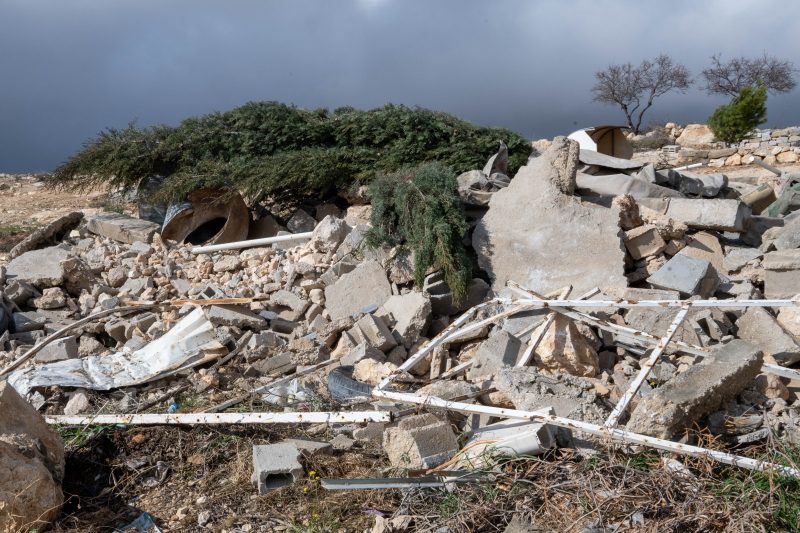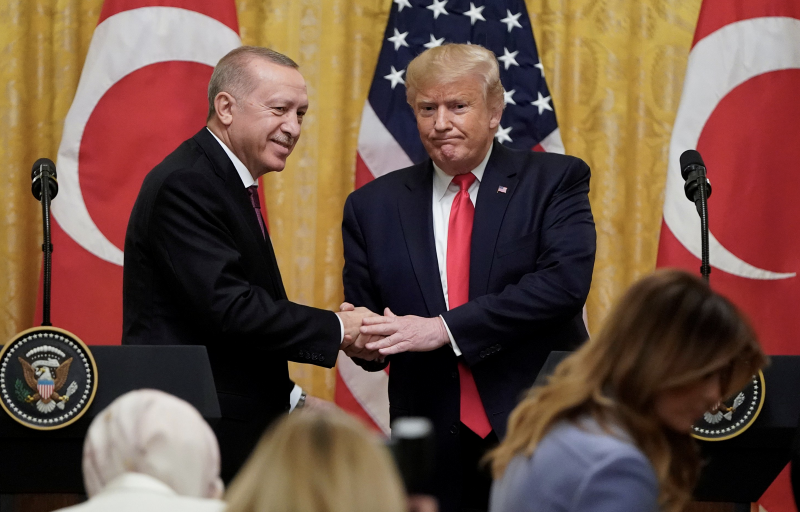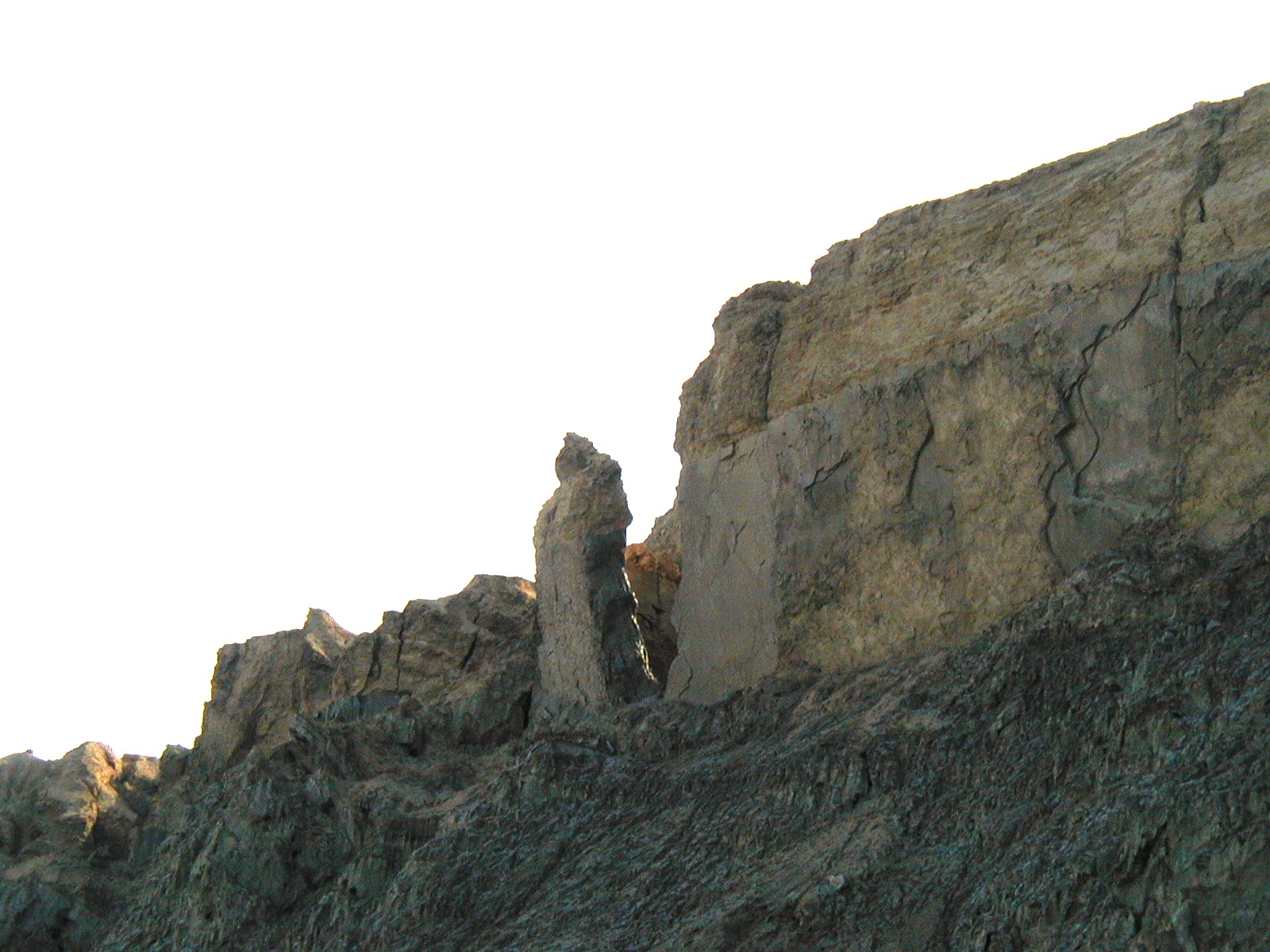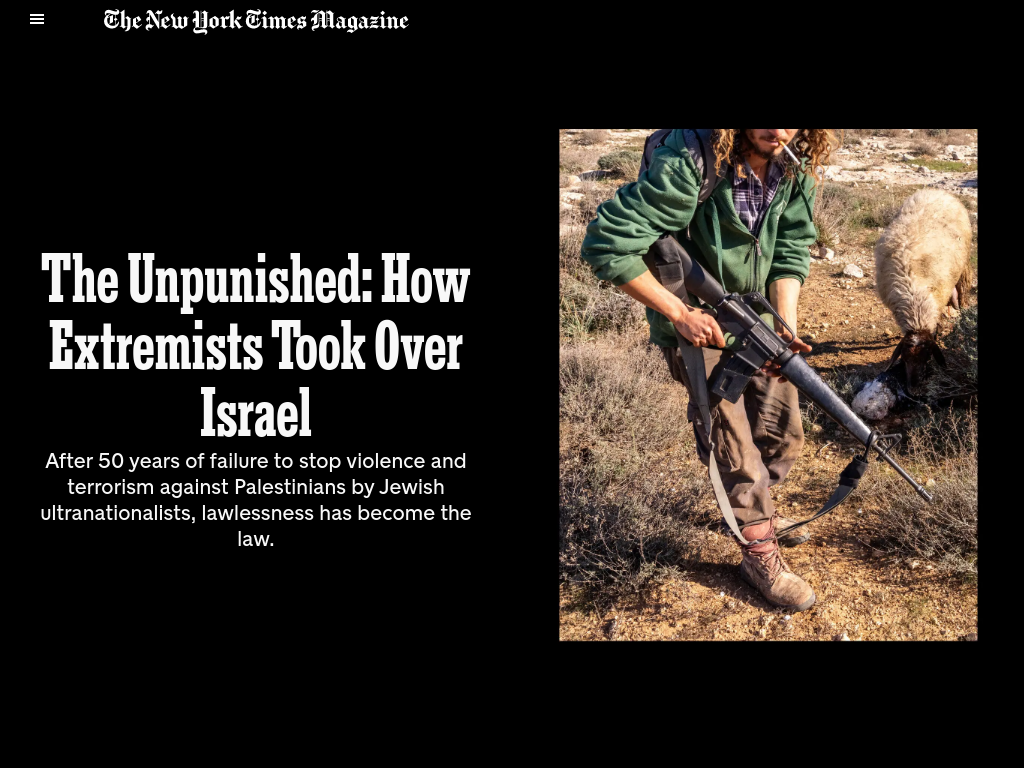the Israeli woman posts a photograph of a child
A Palestinian child. Children have faces.
Underneath she writes in Hebrew —
…………………………..(name) was alive. (Name) is dead now.
…………………………..Two years old. A month old. Six years old.
Terror & Humanism
Trap
How ridiculous and how strange to be surprised at anything that happens in life. — Marcus Aurelius
that was a base mob wannabe move,
a Bergin Fish & Hunt Club on 101st Avenue move,
a turncoat who forgot to wear his 80’s Ozone Park overcoat move,
a he had a deal move, a farcical mob extortion move
Zoom-in, Zoom-out and Things in Between
Last year, after First began publishing Erella Dunayevsky’s stories about her encounters with Palestinians in South Hebron, one engaged reader demurred (gently). The pieces struck him “as what the French call ‘angelism,’ casting the victims of an atrocity in an almost holy light.” This next story, composed by Dunayevsky in 2018, is beyond such caveats. (See the epiphany that follows Dunayevsky’s admission of her pique at the plaints of one Palestinian woman: “She tired me and I tried to ignore this, making a great effort to hide my own fuse, shortening as her speeches lengthen…”) First will be posting more of Dunayevksy’s letters on the Occupation in upcoming months…
The Palestinian Friend
You must call out to the world in our voice.
The House We Live In (Black History Lessons In Our Time)
Charles M. Payne — author of I’ve Got the Light of Freedom: The Organizing Tradition and the Mississippi Freedom Struggle — gave a deep talk at Jackson State’s Martin Luther King Day celebration, tuned to the state of our union today. You can watch his twenty-minute presentation above (and the choir that closes the tribute is ((per Dr. Payne)) “out of sight” too).
We Insist!
Greetings our friends all,
Bertolt Brecht had already said that “when crimes pile up, they become invisible. When suffering becomes unbearable, the screams are no longer heard.”
This was exactly the reason for our visit to Khalet al-Dabe two days after the Civil Administration and the Israeli army, two loyal arms of the Occupation, changed the appearance of this village completely – 7 houses were demolished, 3 caves severely damaged, solar panels broken and electricity cables cut so no light, water tanks smashed so no water – and then they left.
Demolished, collapsed, broken, smashed – even if I used more of the words describing ruin, I could not describe the sights and the heartache. They become lost in the general chaos of the Middle East and the entire world.

Double Truths
We don’t need to make peace with friends.
It is crucial to make peace with enemies.
This war in Gaza has brought nothing but injury, death, grief, destruction and the deliberate perpetuation of the eternal Israeli victimhood syndrome.
…..We talk endlessly about Hamas, a murderous terrorist organization – which it is – one equally concerned with preserving eternal victimhood among Palestinians.
…..We don’t talk about settlers who carry out acts of terror against Palestinian farmers in the south Hebron Hills in the Jordan Valley, as well as in many other areas in the West Bank, farmers who are not terrorists, who do not constitute a threat to the State of Israel.
…..We don’t talk about the indiscriminate destruction perpetrated by the IDF in major cities in the West Bank under the guise of “security.”
What Hamas did on 7/10 erases all words.
What the Israeli government is doing to us and, through the IDF and the settlers, to Palestinians, is beyond words.
So Fortunate to Be Ill (From “Standing Voiceless and other Stories of Resilience”)
Erella Dunayevsky’s stories evoke the dailiness of Palestinians’ lives under occupation. They take place over many years but, as Dunayevsky has written, “the essence of the stories is identical, whether they took place during the nineties of the previous century or are happening right now.”
Erella composed this epistolary story on February 19, 2008…
Nabi (From “Standing Voiceless and other Stories of Resilience”)
Erella Dunayevsky’s stories evoke the dailiness of Palestinians’ lives under occupation. They take place over many years but, as Dunayevsky has written, “the essence of the stories is identical, whether they took place during the nineties of the previous century or are happening right now…”
Rojava is in Danger

With Donald Trump set to return to the White House, the future of Rojava is in serious danger. The last Trump administration green-lit Turkey’s 2019 invasion, resulting in mass displacement, ethnic cleansing of Kurds, and a brutal occupation that continues to this day. Since then, Turkish President Erdogan has threatened to launch another such invasion but repeatedly failed to secure approval from the Biden administration. Reports of Erdogan’s conversation this week with his “friend” Donald Trump suggest that the tides could soon turn in his favor yet again, and another major invasion could be on the horizon.
The Fields of Tanis (a reflection from Haiti)

Dear Family and Friends,
The Haitian people are living through a fourth year of violent torment.
It is the tragic unravelling of the country, with vengeful political discord and the rule of gangs, keeping everything on a crash course.
Having been surrounded by gun battles for most of the past 7 days, and having helped many gunshot, traumatized, robbed, abused and humiliated people over these years, it is more than evident that a bullet easily destroys the whole person: body and mind, heart and soul.
So I had every sympathy for “Keket” yesterday when she, like so many, came to see me for any kind of help.
She was a strong, stocky market woman, in her sixties, until very recently when weakened by a stroke. Since so many clinics and hospitals have closed in the past years, Keket was “lost to follow up.” The whole country is lost to follow up. The whole country is sick in every sense.
Democracy and Feelings: Yoko Tawada brings Paul Celan into the Age of Fiber Optics
Review of Yoko Tawada, Paul Celan and the Trans-Tibetan Angel, translated by Susan Bernofsky (New York: New Directions, 2024).
In retrospect, “bowling alone” ain’t even the worst of it.[1] At least then one retains a modicum of public interaction, an immunity-community[2] formed through the public choreography of shared shoes, balls, lanes. The AppStore at this moment boasts several games flouting “Bowling” and “3D” in their title, a rather perverse inversion of the textures of reality and its flattening by the culture of the screen. The increasing digitization of our live has ravaged social capital and concentrated private capital at a scale far exceeding what even Robert Putnam had in mind. We are becoming increasingly aware of just how devastatingly effective the pandemic of social loneliness—precipitated to hitherto unknown extremes by the COVID-era lockdowns—is for fostering political polarization and right-wing extremism.[3] During the COVID-era, our societies insisted that we remain isolated from one virus, even if that meant exposing us to the ills of whatever goes viral. Four years later, we’re still paying the price for pandemic populism.
In March 2021, I learned the lesson the hard way. It was the centenary of Paul Celan’s birth, and Pierre Joris—gifted poet and translator—was set to speak on his recently completed masterwork, a weighty two-volume translation of Celan’s collected poetry, replete with commentary. Being the dark days of the yet unrelenting pandemic, the talk was naturally on Zoom. Celan’s face loomed on the shared Powerpoint as I introduced Joris. No sooner had he thanked the organizers than it began: the n-word scrawled across the screen; a shrill cartoonish scream invading the speakers; rancid GIFS with gobs of semen extruded on co-eds’ expectant faces; and then, there it was: line by line, the swastika drawn in red ink over Celan’s face. It was thus that I—along with Joris, the other discussants, and the 50 some-odd people present for the talk—were made privy to the phenomenon known as Zoombombing.
Heart of Mine (An Introduction to Erella Dunayevsky’s “Standing Voiceless and other Stories of Resilience”)
Before you, reader, are words of pain. Powerful words. Stories of connection.
Beloved Erella, my oldest and dearest friend, manages in these pages to meet people beyond boundaries, to create connections in places of deliberate separation and to hold out a compassionate hand beyond the limitations of the regime.
Occupation and Resilience
Erella Dunayevsky’s stories bring home what Daniela Kitain terms (above) “the daily reality of Palestinians’ lives under occupation.” What follows is Dunayevsky’s own letter to her readers and two of her urgent yet timeless stories. First of the Month will post more of Dunayevsky’s dispatches in upcoming months.
……….
Dear Reader,
The stories before you take place over many years.
Figures and places vary, but the essence of the stories is identical, whether they took place during the nineties of the previous century or are taking place right now.
The Hebrew language only has four tenses: past, present, future and imperative. I actually need more tenses, as there are in English for example – past continuous and present continuous – so that you, the reader, will correctly interpret the stories before you. They constitute one story about ongoing occupation. A glimpse into the souls who constantly experience it. Something that began to take place once and continues to take place into time unknown.
Her Back Pages
The back cover copy (translated into English by Noelle Canin and Erella Dunayevsky) from Dunayevsky’s Standing Voiceless and other Stories of Resilience.
“We parted. Jaber accompanied us. As we picked our way through the piles of earth resulting from the demolition on the mountainside, on our way to our car we’d parked on the main dirt road, Jabar suddenly stopped, bent down and pointed to the tiniest green plant forging its way through the collapse of stones and earth, saying: ‘This is a Za’atar sprout, it’s determined to live.’”
The collection of sketches in this book describe a journey of long-standing, intimate encounters with people who live under the unbearable reality of ongoing occupation.
Discussing the War

Photo By Ezra Gut
Sometimes I go down to Sodom
to talk to Lot’s Wife
where she looks out at the Dead Sea
Drowning in War
Hold fast to the garden,
the little blue shine of a bird.
Its long, curved beak probes for nectar
in the flowering bush next to my kitchen.
Make this bird as necessary as knowing
what the government does in my name.
Hitler’s Loathsome Paladins
Some readers might immediately recognize the name and distinction of Richard Evans, now Sir Richard Evans, the author of the study Hitler’s People.[1] Evans, the retired Regius Professor of History at Cambridge, was the scholarly companion-in-arms to Deborah Lipstadt when she was accused of libel by the crypto-Nazi provocateur David Irving. Even under the painful constraints of British libel law, requiring the alleged libeler (Lipstadt) to prove that she was right in having debased the libeled party, Lipstadt would win the case, thanks to Evans on her side. Irving had sought to enrich himself at Lipstadt’s and Penguin Books’ expense for falsely terming him a “Holocaust-denier” and “an ardent follower of Adolf Hitler.” Evans proved her correct.
In Hitler’s People, Evans makes a new departure from his previous achievement as a political and social historian of Nazi Germany. Here, he considers the character of the perpetrator. Who are these individuals who–along with Hitler, whom they worshipped—conspired to commit these monumental crimes against humanity, and quite particularly against the Jews? Is there a “new acquist/of true experience” to be had in examining the brief lives of the best-known criminals of the Nazi Reich?[2]—an experience, which Evans hopes, will equip us to better deal with the likes of a Trump and an Orbán (whom we’ve recently met on these pages as members of Autocracy, Inc., the worldwide collective of autocrats)? The jury is out.
Rushdie’s Knife with Occam’s Razor
Salman Rushdie has written an eloquent memoir, a meditation on his near murder by an assassin’s knife, called, simply, Knife. On seeing this book, I immediately recalled another book title, a German counterthrust to Adorno’s 1951-dictum, “Nach Auschwitz ein Gedicht zu schreiben, ist barbarisch” (After Auschwitz, to write a poem is barbaric). The title of this resistant text, which appeared in 1955, is Mein Gedicht ist mein Messer: Lyriker zu ihren Gedichten (My Poem is My Knife: Lyric Poets on Their Poems).[1] Here is evidence that men and women will write poems, will continue to take dictation from their personalità poetica; but in this instance they do so at an extraordinary distance from their recent history, from the Nazi catastrophe and its aftershocks. An engaged German poetry needed another generation of writers.
What does that mean, “my poem is my knife”?
An Encroaching Evil: Anne Applebaum Confronts Autocracy, Inc.
Franz Kafka, a spiritual guide in these trying times, thought that there might be “a certain truth in a chorus (or choir)” of voices. For this choir, I propose vox populi and will draw counsel from readers of Anne Applebaum and listeners to Anne Applebaum who have written their reactions into the Web. After Applebaum spoke in London on “‘Putinism’: The Ideology,” one listener commented, quite simply, “Brilliant mind! Very articulate!” On another occasion, an admirer wrote, “Always, always great to hear Anne Applebaum speak. So deeply informed, humane and articulate.” I cite these voices because they speak to my own. True, another listener to her London talk complained about her very articulateness, since “being articulate like Ribbentrop or Beria (sic) is not a highly prized point of honor” (this is also what vox populi gets you); but readers of her latest book, Autocracy, Inc. aren’t likely to mind the clarity and force of her every word.
“La Guerre” n’est pas finie
Pet Shop Boys have always soundtracked our times, from the AIDs era (try “King’s Cross”) to Obamatime (“More than a Dream“). Earlier this season their prophetic “Bullet for Narcissus” was tuned to a Secret Service officer on guard as Trump ranted at a rally…
Itamar the Monster

This long investigative report (published in the Sunday Times Magazine on May 16) by Ronen Bergman and Mark Mazzetti should become the most consequential piece of magazine journalism since Ta-Nehisi Coates published “The Case for Reparations” in The Atlantic ten years ago. May it be read in Israel where the public has become ever more impervious to crimes committed against Arabs. One of Israel’s extreme right-wing pols has condemned the Times piece as a “blood libel.” But Itamar Ben-Gvir — the ultra-settler who’s been Israel’s Minster of National Security since 2022 — seems to be in avoidant mode. This swatch from the article, detailing Ben-Givr’s support for mass murder and assassination, suggests why he might be betting evasion is his best option…